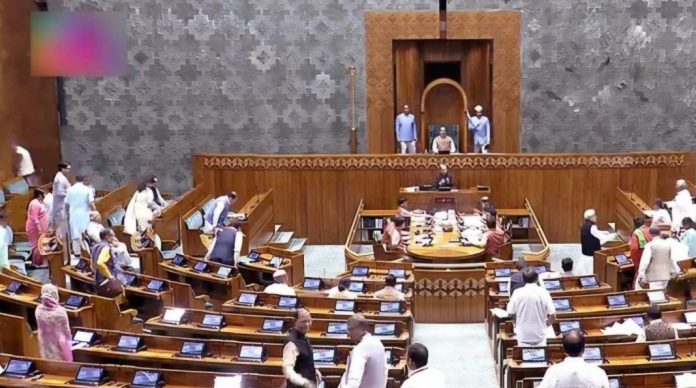8 August 2024: The Union Government’s porposed plans to amend the Waqf Act, 1995 have ignited strong opposition from both secular parties and Muslim organizations across the country. The proposed changes, which include over 40 amendments aimed at restricting the powers of the Waqf Board, have drawn sharp criticism for allegedly targeting Muslim interests and further marginalizing the community.
The amendments, which are expected to be introduced in the current parliamentary session, propose a mandatory verification process for all properties claimed by the Waqf Board. Critics argue that this move is part of a broader strategy by the government to undermine the autonomy of Waqf Boards, following similar actions in the past, such as the controversial handling of the Triple Talaq issue, reported The Times of India.
The Waqf Act of 1995 was established to regulate Auqaf, or assets dedicated as Waqf, which are intended for religious, charitable, or pious purposes under Islamic law. However, the new amendments seek to limit the Board’s authority in designating properties as Waqf, which has raised concerns among Muslim leaders and organizations.
In addition to restricting the Waqf Board’s powers, the amendments include provisions to increase inclusivity by adding Muslim women to various state bodies. While some argue that this is a positive step, others see it as a ploy to distract from the broader implications of the bill. The All India Muslim Personal Law Board (AIMPLB) has several women members, and the inclusion of women in Waqf Boards is not generally opposed within the community. However, the suggestion that Muslims are against this inclusion is viewed as misleading by many.
The groundwork for these amendments was laid last year when a public interest litigation (PIL) was filed by lawyer Ashwini Kumar Upadhyay, challenging the validity of certain provisions of the Waqf Act. Upadhyay argued that the Act was discriminatory, as there are no equivalent laws for other religious communities in India. This has led to questions about whether the government would similarly regulate trusts that manage Hindu temples and other religious institutions.
Further complicating the matter, reports suggest that the government plans to create separate Waqf Boards for specific Muslim sects, such as the Boharas and Aghakhanis. This move is seen by many as an attempt to sow discord within the Muslim community.
The proposed amendments have drawn widespread condemnation from Muslim organizations and opposition parties alike. AIMPLB spokesman Dr. SQR Ilyas criticized the government’s intentions, expressing disappointment that the BJP has not altered its approach following the conclusion of the 2024 Lok Sabha elections. Asaduddin Owaisi, chief of the All India Majlis-e-Ittehadul Muslimeen (AIMIM), accused the government of pursuing a Hindutva agenda and seeking to seize Waqf properties under the guise of these amendments.
Opposition leaders, including Samajwadi Party chief Akhilesh Yadav and IUML’s E.T. Mohammed Basheer, have also voiced their opposition, accusing the BJP of divisive politics and vowing to fight the bill. Other parties, such as CPI(M) and Shiv Sena (UBT), have echoed these sentiments, warning that the proposed legislation could deepen communal divisions in the country.
The Jamiat Ulama-i-Hind, a prominent Muslim organization, has threatened to challenge the amendments in the Supreme Court if they are passed, asserting that any changes that weaken the Waqf Boards or make them more susceptible to misuse are unacceptable.
As the debate intensifies, the government’s move to amend the Waqf Act is shaping up to be a major flashpoint in Indian politics, with significant implications for the country’s Muslim community and the broader secular fabric of the nation.




